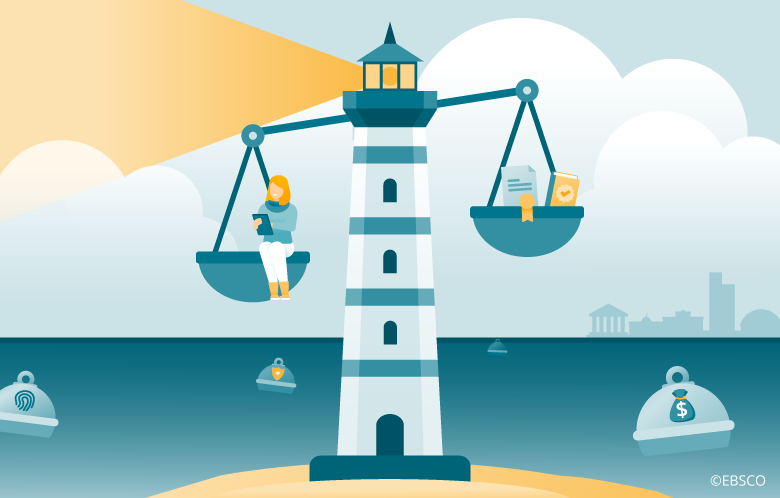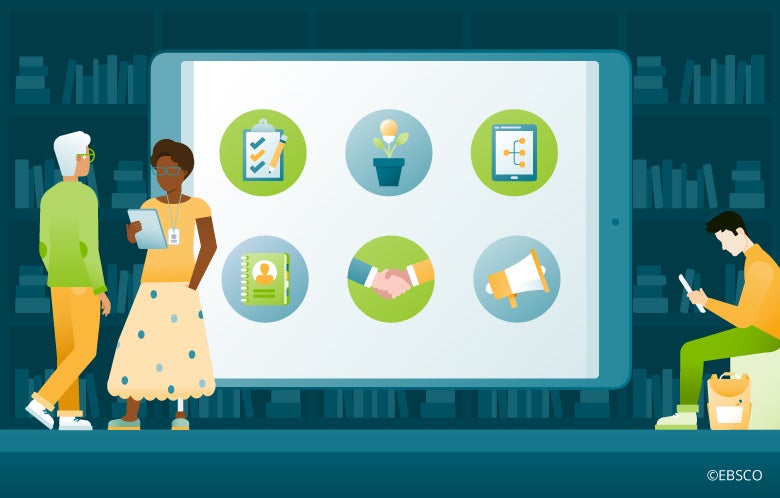In an increasingly complex and interconnected world, where legal questions and concerns are a part of everyday life, public libraries are uniquely positioned to offer accessible and reliable information to individuals seeking guidance in matters of law and consumer rights.
The popularity and relevance of consumer legal topics can vary by region and change over time. As such, patrons should always consult with a legal professional or appropriate government agency for specific guidance on consumer legal issues in their area. However, libraries can provide them with access to a reliable reference database, such as Legal Information Source, to address some of the most common consumer legal topics.
Top 10 Legal Topics for Consumers
Libraries should ensure their collections cover:
- Consumer Rights and Protection
This subject area includes topics such as the right to fair treatment in the marketplace, protection against fraudulent and deceptive business practices, and the right to be informed about products and services. Consumers should know how to submit warranty claims, document consumer complaints, seek resolution from businesses (both brick-and-mortar and online), and utilize consumer protection agencies such as the Federal Trade Commission (FTC) to report and address problems. - Legal Agreements, Contracts and Disputes
Patrons who encounter disagreements — whether it be with neighbors, contractors, business partners, roommates, landlords or tenants — will need access to information on legal agreements, contracts and disputes. Common topics include breach of contract, landlord-tenant disputes, mediation/dispute resolution, and representing yourself in small claims court. - Real Estate Law
Nearly every individual will need, at some point in life, to navigate issues related to renting, buying or selling a home. Additional topics include housing discrimination, failure to disclose defects, zoning laws, foreclosure, renter’s rights and more. - Insurance and Claims
With the right information up front, members of your community will be more confident dealing with insurance companies, filing claims and ensuring fair settlements in cases of accidents, property damage or health issues. - Financial Matters
In the world of banking and finance, disputes can arise involving bank accounts, loans, mortgages, and credit card charges. Patrons might also need information to help them understand debt collection practices, debt relief options, credit repair, and the process of filing for bankruptcy. - Identity Theft and Privacy
Consumers need to know how to protect their personal information and quickly address identity theft, data breaches, and violations of privacy rights. - Employment Law
This subject area covers employee rights and protections, including wage and hour laws, workplace discrimination, and wrongful termination. - Family Law
This branch of law deals with matters related to the family, such as marriage, divorce, child custody and child support. - Elder Law
Elder law addresses legal issues affecting older consumers, such as wills and estate planning, elder abuse and concerns related to Medicare/Medicaid. - Immigration Law
Libraries can support the immigrant populations in their communities by providing information on topics such as green cards, visas, federal employment laws, and naturalization/citizenship.
Legal Forms
Legal forms are essential tools for helping individuals and businesses navigate legal processes. By offering access to legal forms, libraries empower patrons who may not have the means to consult legal professionals or purchase legal forms on their own. In addition, legal forms often come with instructions and explanations, providing educational support for individuals seeking to better understand legal processes.
Legal Information Source provides a robust collection of federal and state-specific legal forms, worksheets and checklists, including bill of sale agreements, accident claim worksheets, bankruptcy petitions and reaffirmation agreements, nondisclosure agreements, parenting and childcare agreements, home repair and maintenance agreements, wills and power of attorney documents, rental agreements, landlord-tenant checklists and thousands more.
Programming Ideas for Libraries
For libraries looking to enhance their library programming, consider these three ideas for sharing legal information with patrons:
- Legal Information Workshops
Host regular workshops or seminars led by legal experts or volunteers from local legal aid organizations. These workshops can cover a range of legal topics, such as consumer rights, landlord-tenant disputes, employment law or family law. These sessions can educate patrons on their rights and how to navigate legal processes. Provide time for Q&A sessions to address specific questions or concerns. - Legal Information Clinics
Collaborate with local legal professionals to organize legal clinics and host them in the library. During these clinics, patrons can have one-on-one consultations with attorneys or legal experts. This provides a valuable opportunity for individuals to receive personalized legal advice and guidance. These clinics can focus on specific legal issues like immigration, estate planning or small claims court matters. - Online Legal Resource Hub
Create an online legal resource hub or LibGuide on the library's website. This central repository of legal information should include links to relevant websites, downloadable guides, and videos explaining legal processes. Ensure the resources are reliable, up-to-date and user-friendly, making it easy for patrons to access the information they need at their convenience.
Remember to promote these programs through the library's website, social media, and in-library signage to ensure that patrons are aware of the resources and events available to help them address their legal questions and concerns. (EBSCO offers a free promotion kit with printable materials and graphics to help subscribing libraries market Legal Information Source to patrons.)
The public library’s role in meeting consumer legal information needs is one example of its commitment to empowerment and knowledge-sharing. By offering access to legal databases, hosting workshops, partnering with legal experts, and providing a welcoming space for learning, public libraries help bridge the gap between individuals and the daunting world of legal matters. In doing so, they empower consumers with the knowledge and confidence they need to make informed decisions, protect their rights and navigate the complexities of our legal system.



